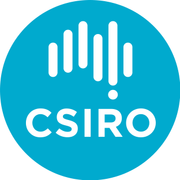CSIRO Postdoctoral Fellowship in AI Based Decision Support in Fracture Diagnosis
AI Job Summary
Acknowledgement of Country
CSIRO acknowledges the Traditional Owners of the land, sea and waters, of the area that we live and work on across Australia. We acknowledge their continuing connection to their culture and pay our respects to their Elders past and present. View our vision towards reconciliation
Child Safety
CSIRO is committed to the safety and wellbeing of all children and young people involved in our activities and programs. View our Child Safe Policy.
The Opportunity
- Do you have a PhD in computer science, medical image analysis, computer vision, data science, machine learning?
- Conduct impactful research in delivering digital solutions to Australia’s greatest health challenges.
- Join the AEHRC team in the exciting 3-year postdoctoral opportunity!
CSIRO Early Research Career (CERC) Postdoctoral Fellowships provide opportunities to scientists and engineers who have completed their doctorate and have less than three years of relevant postdoctoral work experience. These fellowships aim to develop the next generation of future leaders of the innovation system.
The Australian e-Health Research Centre is excited to welcome a CERC Fellow to join the team in contributing to research in the development of AI technology, augmenting X-ray clinicians for improved outcomes in fracture diagnosis in emergency settings.
The focus of this CERC Fellowship will be on developing and evaluating an AI-based system for fast and improved assessment of bone fracture and related infections using X-rays. This would initially include analysis images and meta data which the team has already got access to, experiment on existing machine learning models and development of computer vision/machine learning models specific to the context.
Currently, fracture diagnosis is reliant on X-rays being assessed manually by qualified experts. However, while X-ray equipment is widely available in rural and remote hospitals, clinics and nursing posts, in the face of staff shortages and increasing patient numbers, getting access to a competent X-ray expert is increasingly difficult. In this context, the integration of an AI tool to support clinical decision-making has significant potential to reduce clinician burden and reduce the time to diagnosis and treatment. Previous studies, including our own, have demonstrated the promising utility of AI assistance in fracture detection on X-rays. However, there remains a gap in the research when it comes to developing large-scale AI models for population-based studies and conducting comprehensive assessments of skeletal injuries. Despite being a cost-effective option, the inherent challenge of poor visible contrast of soft tissue (traditionally problematic for human visual inspection) in X-rays, coupled with the scarcity of longitudinal data, has left this area largely unexplored. This project aims to address this crucial knowledge gap.
Your duties will include:
- Developing computer vision methods for quantitative measurements of changes in the X-rays over-time and relating those with clinical observations.
- Developing advanced machine learning technique for quantitative analysis of disease progression and/or response to treatment.
- Working in collaboration with other stakeholders, towards the successful development of the proposed AI system.
- Carry out research investigations requiring originality, creativity and innovation.
- Publish research findings in high-impact scientific journals and present results at national and international conferences.
- Recognising and exploiting opportunities for innovation and the generation of new theoretical perspectives, and progress opportunities for the further development or creation of new lines of research.
To be considered you will need:
- A doctorate (or will shortly satisfy the requirements of a PhD). The doctorate must be in a relevant discipline area, such as computer science, medical image analysis, computer vision, data science, machine learning, or other related disciplines. Please note: To be eligible for this role you must have no more than 3 years (or full time equivalent) of relevant research experience.
- Experience in developing, validating, and implementing machine learning, and/or deep learning, and/or computer vision models.
- Skills and experience in one or more of the following areas: medical image analysis, digital image processing, data science.
- Demonstrated competency in Python and/or C++ and software development processes and environments (such as git).
- Demonstrated ability to work under broad direction only, exercise initiative in undertaking responsibilities.
- Experience working collaboratively in interdisciplinary groups.
For full details about this role please view the Position Description
Eligibility
Applications for this position are open to Australian/New Zealand Citizens, Australian Permanent Residents or you must either hold, or be able to obtain, a valid working visa for the duration of the specified term.
Appointment to this role is subject to provision of a national police check and may be subject to other security/medical/character requirements.
Candidates will be expected to commence employment by 30 June 2024.
Flexible Working Arrangements
We work flexibly at CSIRO, offering a range of options for how, when and where you work.
Diversity and Inclusion
We are working hard to recruit people representing the diversity across our society, and ensure that all our people feel supported to do their best work and feel empowered to let their ideas flourish.
About CSIRO
At CSIRO Australia's national science agency, we solve the greatest challenges through innovative science and technology. We put the safety and wellbeing of our people above all else and earn trust everywhere because we only deal in facts. We collaborate widely and generously and deliver solutions with real impact.
CSIRO is committed to values-based leadership to inspire performance and unlock the potential of our people.
Join us and start creating tomorrow today!
How to Apply
Please apply on-line and provide a cover letter which includes a statement addressing both the essential and desirable selection criteria and a CV that best demonstrate your motivation and ability to meet the requirements of this role.
- Job type:Graduate Jobs
- Disciplines:Computer Science, Data Science and Analytics,...
- Work rights:Australian Working Visa, Australian Skilled...
- Locations:Perth, Regional Western...
- Salary
AU$92k - AU$101k plus up to 15.4% superannuation
- Tenure
Specified term of 3 years
- Closing Date:31st Jan 2024, 12:00 pm
Search
Enter an employer or university you want to find in our search bar.

